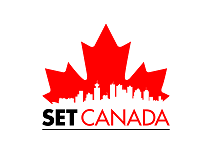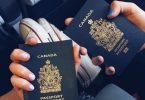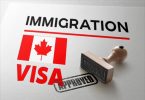Immigration to Canada refers to the process of individuals relocating to Canada from their home countries to become permanent residents or citizens of Canada. Canada is known for its welcoming immigration policies, diverse society, strong economy, and high standard of living, making it an attractive destination for individuals seeking new opportunities and a better quality of life.
Canada offers various immigration programs targeting different categories of individuals, including skilled workers, entrepreneurs, students, and family members of Canadian citizens or permanent residents. Each program has specific eligibility criteria that applicants must meet, such as age, education, work experience, language proficiency, and adaptability factors.
The application process generally involves submitting an application to the appropriate immigration program or category. This typically includes providing documentation to demonstrate eligibility, such as educational credentials, language test results, work experience letters, and proof of funds. Some programs require applicants to undergo medical examinations and security clearances.
Canada uses a points-based system known as the Comprehensive Ranking System (CRS) for certain immigration programs, such as the Express Entry system. The CRS evaluates candidates based on factors like age, education, work experience, language proficiency, and adaptability. Candidates with higher CRS scores are more likely to receive invitations to apply for permanent residency.
Successful applicants are granted permanent residency in Canada, which allows them to live, work, and study anywhere in the country. Permanent residents have access to most social benefits that Canadian citizens receive, including healthcare coverage, education, and social services.
After meeting certain residency requirements, permanent residents can apply for Canadian citizenship. Canadian citizens enjoy additional benefits, such as the right to vote, a Canadian passport, and protection under Canadian law.
Canada has a strong and diverse economy that offers numerous employment opportunities across various sectors. Immigrants contribute to the Canadian workforce and fill labor market gaps in areas of demand. Skilled immigrants may find employment in their respective fields or even start their own businesses.
Canada is known for its multiculturalism and diversity. People from all over the world bring their cultures, traditions, and perspectives, contributing to a vibrant and inclusive society. Canadian cities are often ranked among the most livable and multicultural in the world.
Canada offers various immigration programs that you can explore based on your qualifications, work experience, education, language proficiency, and other factors. Here are some common immigration programs you may consider:
1. Express Entry:
The Express Entry system manages applications for three federal economic immigration programs: the Federal Skilled Worker Program (FSWP), the Federal Skilled Trades Program (FSTP), and the Canadian Experience Class (CEC). To be eligible, you need to meet specific criteria and create an online profile to enter the Express Entry pool. Candidates with the highest Comprehensive Ranking System (CRS) scores are invited to apply for permanent residency.
– Federal Skilled Worker Program (FSWP): This program is for skilled workers with foreign work experience in a National Occupational Classification (NOC) skill level 0, A, or B occupation. The selection criteria include factors such as age, education, work experience, language proficiency, and adaptability.
- To be eligible, applicants must have at least one year of continuous full-time (or equivalent part-time) paid work experience in a skilled occupation within the last 10 years. The work experience must be classified under NOC skill level 0, A, or B. Additionally, applicants must meet minimum language requirements, provide an Educational Credential Assessment (ECA) for foreign education, and score sufficient points on the Comprehensive Ranking System (CRS) to receive an invitation to apply for permanent residency.
– Federal Skilled Trades Program (FSTP): This program is for skilled tradespeople with experience in a skilled trade occupation listed in the NOC. In addition to meeting specific trade requirements, applicants need to satisfy the minimum language proficiency and other criteria.
- This program targets individuals with at least two years of full-time work experience (or equivalent) in a skilled trade occupation listed under the NOC. Applicants must also have an offer of full-time employment for at least one year or a Certificate of Qualification in their skilled trade issued by a Canadian provincial or territorial authority.
– Canadian Experience Class (CEC): This program is for individuals with at least one year of skilled work experience in Canada. Applicants must meet language requirements and have gained their experience in Canada with proper authorization.
- To be eligible, applicants must have at least one year of full-time skilled work experience in Canada in a NOC 0, A, or B occupation. The work experience must have been obtained with proper authorization, such as a work permit. Applicants must meet language proficiency requirements and demonstrate that they plan to live outside the province of Quebec.
2. Provincial Nominee Programs (PNPs):
Canadian provinces and territories have their own PNPs that target specific skills and labor market needs. Each province or territory has its own eligibility requirements and selection criteria. If nominated by a province or territory, you can apply for permanent residency through Express Entry or a separate stream.
– Each province and territory in Canada has its own PNP, with specific streams and criteria. These programs allow provinces to nominate candidates who meet their specific labor market and economic needs. Each PNP has its own selection criteria, such as work experience, education, language proficiency, and connection to the province.
3. Family Sponsorship:
If you have a family member who is a Canadian citizen or permanent resident, they may be able to sponsor you for immigration to Canada. This program allows eligible Canadian citizens or permanent residents to sponsor their spouses, common-law partners, dependent children, parents, and grandparents.
– This program enables Canadian citizens and permanent residents to sponsor eligible family members for immigration to Canada. The eligible family members may include spouses or common-law partners, dependent children, parents, and grandparents. Sponsors must meet certain income requirements to demonstrate the ability to support their sponsored family members.
4. Start-up Visa Program:
If you have an innovative business idea and have the support of a designated organization, such as a business incubator or venture capital fund, you may be eligible for the Start-up Visa Program. This program aims to attract foreign entrepreneurs to establish innovative businesses in Canada.
– This program is designed for entrepreneurs who have a viable business idea and can secure support from a designated organization, such as a venture capital fund, angel investor group, or business incubator. Successful applicants receive a letter of support from the designated organization, allowing them to apply for permanent residency.
5. Canadian Experience Class (CEC):
If you have gained at least one year of skilled work experience in Canada, you may be eligible to apply for permanent residency through the CEC. This program is designed for individuals who have adapted to Canadian society and have proven their language skills and work experience.
– This program is for individuals with at least one year of skilled work experience in Canada in a NOC 0, A, or B occupation. Applicants must meet language proficiency requirements and have gained their experience in Canada with proper authorization.
6. Atlantic Immigration Pilot:
This program targets skilled workers and international graduates who want to live and work in one of the Atlantic provinces: Nova Scotia, New Brunswick, Newfoundland and Labrador, and Prince Edward Island. Eligible candidates must have a job offer from a designated employer in one of the participating provinces.
– This pilot program targets skilled workers and international graduates who want to live and work in one of the Atlantic provinces (Nova Scotia, New Brunswick, Newfoundland and Labrador, and Prince Edward Island). Candidates need a job offer from a designated employer in one of the participating provinces and must meet specific eligibility criteria.
7. Post-Graduation Work Permit Program:
Canada offers a program that allows individuals to immigrate through studying, known as the Post-Graduation Work Permit (PGWP) Program. This program is designed for international students who have completed a program of study at a designated learning institution in Canada.
Here are the key details about the Post-Graduation Work Permit Program:
- Eligibility: To be eligible for the PGWP, you must have completed a full-time program of study at a designated learning institution in Canada. The program must be a minimum of eight months in duration and lead to a degree, diploma, or certificate.
- Validity and Duration: The PGWP allows you to work in Canada for a specified period, usually ranging from eight months to three years, depending on the length of your study program. The work permit is an open work permit, which means you can work for any employer in Canada and in any occupation.
- Application Process: To apply for the PGWP, you need to submit your application within 180 days of completing your program. You will need to provide proof of graduation, such as your official transcripts or diploma, along with other supporting documents. The application is submitted to Immigration, Refugees and Citizenship Canada (IRCC).
- Post-Graduation Employment Opportunities: The PGWP allows you to gain valuable work experience in Canada, which can contribute towards your eligibility for permanent residency through programs such as the Canadian Experience Class (CEC) or the various Provincial Nominee Programs (PNPs). Having Canadian work experience can enhance your chances of securing permanent residency.
- Designated Learning Institutions: To be eligible for the PGWP, you must have studied at a designated learning institution in Canada. These institutions include universities, colleges, and other educational organizations approved by the government.









